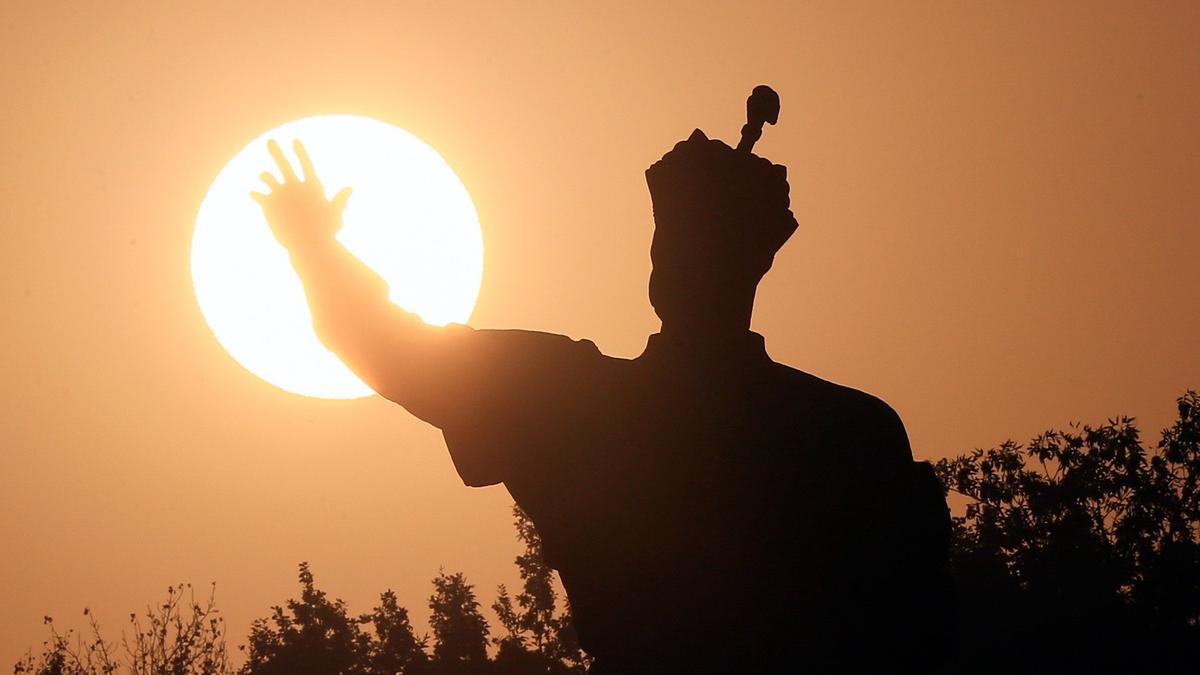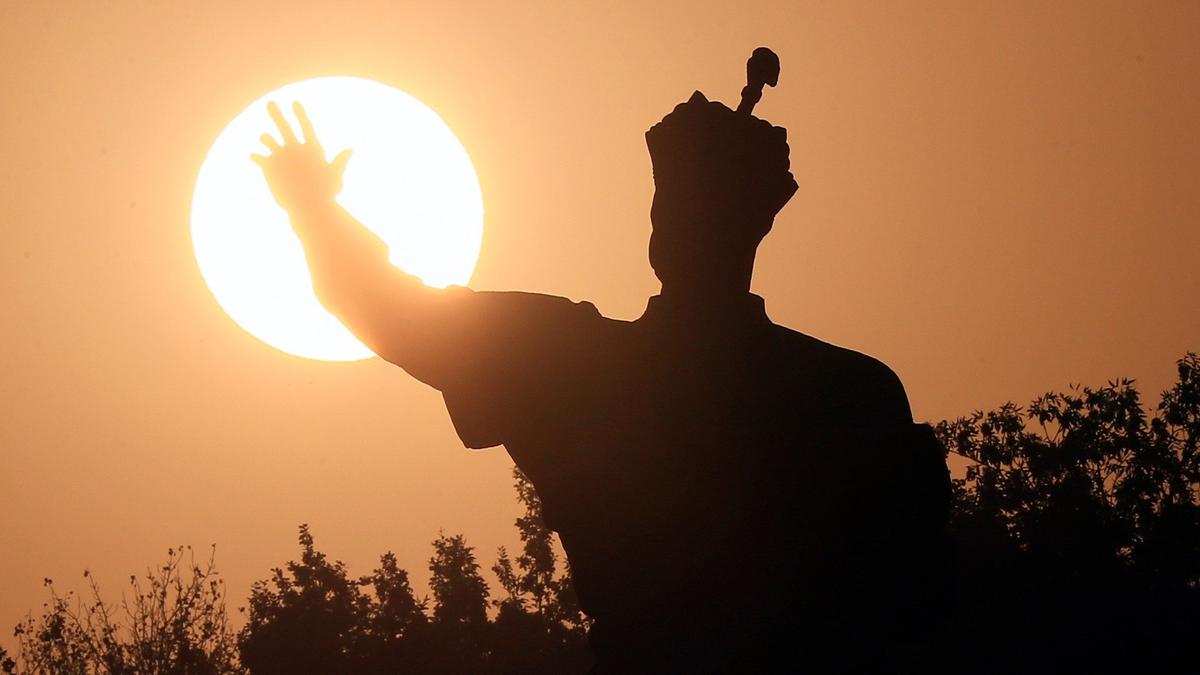Uzbekistan is currently witnessing one of the largest political scandals in its recent history. Amid an investigation involving high-ranking security officials implicated in an attempted assassination of former presidential press secretary Komil Allamjonov, the Prosecutor General’s Office announced the extradition of businessman Ulugbek Shadmanov from the UAE. Shadmanov is identified as the principal financier of a powerful group of security forces and a figure with strong ties to Russia.
A Rising Star in Uzbek Business
At just under 40 years old, Ulugbek Shadmanov has already cemented his place in the annals of Uzbekistan’s big business. Born into the family of a respected Tashkent official, Mirrustam Shadmanov, the first deputy chairman of the Uzpromstroy Materials Association, Ulugbek was drawn to wealth from an early age, seemingly viewing it as the cornerstone of a free and successful life.
A widely circulated photo of a young Ulugbek shaking hands with Uzbekistan’s first president, Islam Karimov, offers a poignant illustration of his career’s promising start in this region of the world. By the age of 14, Ulugbek already held shares in commercial enterprises involved in construction material supply, and at 20, he founded his first and key company—United Cement Group (UCG).
Over the next two decades, UCG, headquartered in Cyprus, flourished in the cement production market. However, its true golden era came in the past five years when it evolved from a minor player into Central Asia’s largest cement producer, employing 7,000 people and boasting an annual production volume of 10 million tonnes.
Experts highlight that UCG’s production hub consisted of three plants—Bekabad Cement, Kuvasay Cement, and Kyzylkum Cement. Notably, the latter was acquired in 2022 through a privatization deal that bypassed standard tender procedures.
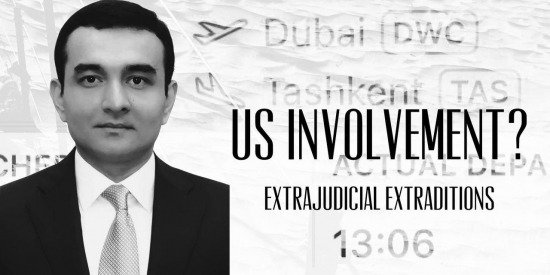
Businessman Ulugbek Shadmanov was detained at his home in the UAE and deported to Uzbekistan
The Office: A Powerful Network
This business empire might have escaped public scrutiny in a country accustomed to its elite monopolizing national wealth if Shadmanov hadn’t relied on the backing of Otabek Umarov, an ambitious former deputy head of the Presidential Security Service.
Until recently, Umarov unofficially supervised Uzbekistan’s entire security apparatus, systematically building an autonomous power structure. Close associates occupied key positions in the bureaucratic system and controlled whole economic sectors—from oil and gas to sugar and pharmaceuticals.
Colloquially known as “The Office,” this network bore a name as succinct as it was modern, revealing the underlying essence of power for its members.
Shadmanov aligned his business strategy with power dynamics, wisely choosing to integrate himself into The Office—not merely as a financial donor or sponsor for the political establishment but as its top manager, or “Chief Operating Officer.” This unique role conferred upon him a special status and, more importantly, opportunities to expand his business empire.
Given Uzbekistan’s historical dependence on Russia as its primary trade partner and export route to global markets, UCG’s owner seized the chance to deepen cooperation with Moscow. In peaceful times, this would have been a lucrative long-term venture. However, the current geopolitical context rendered Shadmanov vulnerable.
The U.S. Spotlight
In March last year, U.S. Congressman Wesley Hunt, a Republican from Texas, brought UCG’s activities to the attention of the House of Representatives:
“United Cement Group, operating in Uzbekistan and Russia, acquired a stake in one of Uzbekistan’s largest cement plants in early 2022 through a non-transparent deal without an official tender and at a significant discount. This transaction allows UCG to control about 50% of Uzbekistan’s cement production capacity. I will write to Secretary of the Treasury Yellen requesting an investigation into these evidently corrupt practices and potential sanctions violations [related to exports to Russia].”
Some analysts speculate that the congressman’s statement was prompted by Ukrainian lobbyists who alleged that UCG’s products were being used by Russia to build fortifications in the Special Military Operation (SMO) zone. Regardless, Shadmanov and The Office’s appearance on the congressman’s radar aligned with U.S. foreign policy objectives. In June 2022, the U.S. Department of Commerce included Uzbekistan in a list of countries serving as “transit points for restricted or controlled exports before reaching Russia or Belarus.”
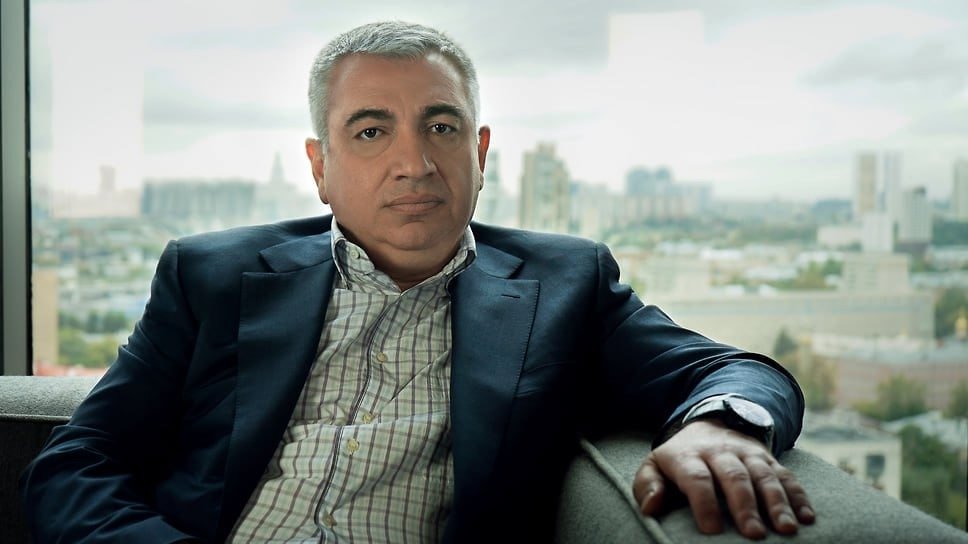
Ovik Mkrtchyan. Photo: public archive
One of the most striking episodes involves Armenian businessman Ovik Mkrtchyan. According to Mkrtchyan, Shadmanov, along with Stanislav Tsatskin and accomplices from Uzbekistan’s State Security Service (SSS), detained him for 85 days, subjecting him to torture to extract $70 million. Beyond monetary demands, Shadmanov and The Office reportedly pressured Mkrtchyan to leverage his international connections to advocate for U.S. sanctions against Komil Allamjonov and Dmitry Li—figures closely tied to Uzbekistan’s reform agenda.
After Mkrtchyan refused, his arrest and subsequent detention by the SSS followed predictably in line with The Office’s modus operandi.
Поддержите
нашу работу!
Нажимая кнопку «Стать соучастником»,
я принимаю условия и подтверждаю свое гражданство РФ
Если у вас есть вопросы, пишите [email protected] или звоните:
+7 (929) 612-03-68
“Office” Plankton
The dismantling of the powerful “Office” began on 26 October 2024, when a vehicle carrying Komil Allamjonov was fired upon on a road in Tashkent.
In Uzbekistan, Komil had established himself as a reformer striving to fundamentally change key sectors of society: education, the economy, the judicial system, media, and culture. He was at the forefront of reforms aimed at ensuring the transparency of government bodies, promoting media freedom, and democratising society. This reveals the motive: openness and liberalism inherently pose a threat to a closed organisation that thrives on extorting wealth from Uzbek businesses.
The assailants fired a burst of automatic gunfire at the vehicle but caused no harm to either its passengers or even the driver.
The crime was committed on the eve of parliamentary elections, appearing as an audacious demonstration of defiance.
While the special investigation team, formed under presidential orders, detained the key perpetrators, the Uzbek press shed light on Allamjonov’s unique role. It emerged that, beyond actively working on advancing reforms in the country, Allamjonov regularly reported to the president about abuses by the “Office” and acts of tyranny against those who had fallen out of favour with this omnipotent organisation. However, while this fact suggested the potential for conflict, it still did not provide definitive grounds to claim that Otabek Umarov’s entourage was responsible for the assassination attempt on Allamjonov.
After two and a half months of investigation, the General Prosecutor’s Office announced the main results: charges were brought against seven individuals, five of whom were immediately placed in custody, while two others were extradited from Kazakhstan and South Korea. Two additional suspects—Russian citizens and Chechnya natives Bislan Rasaev and Shamil Temirkhanov—were charged in absentia with violating state borders, illegal arms trafficking, and failure to report a crime. According to journalistic investigations, they had been involved in preparing the attempt on Allamjonov’s life as early as August 2024.
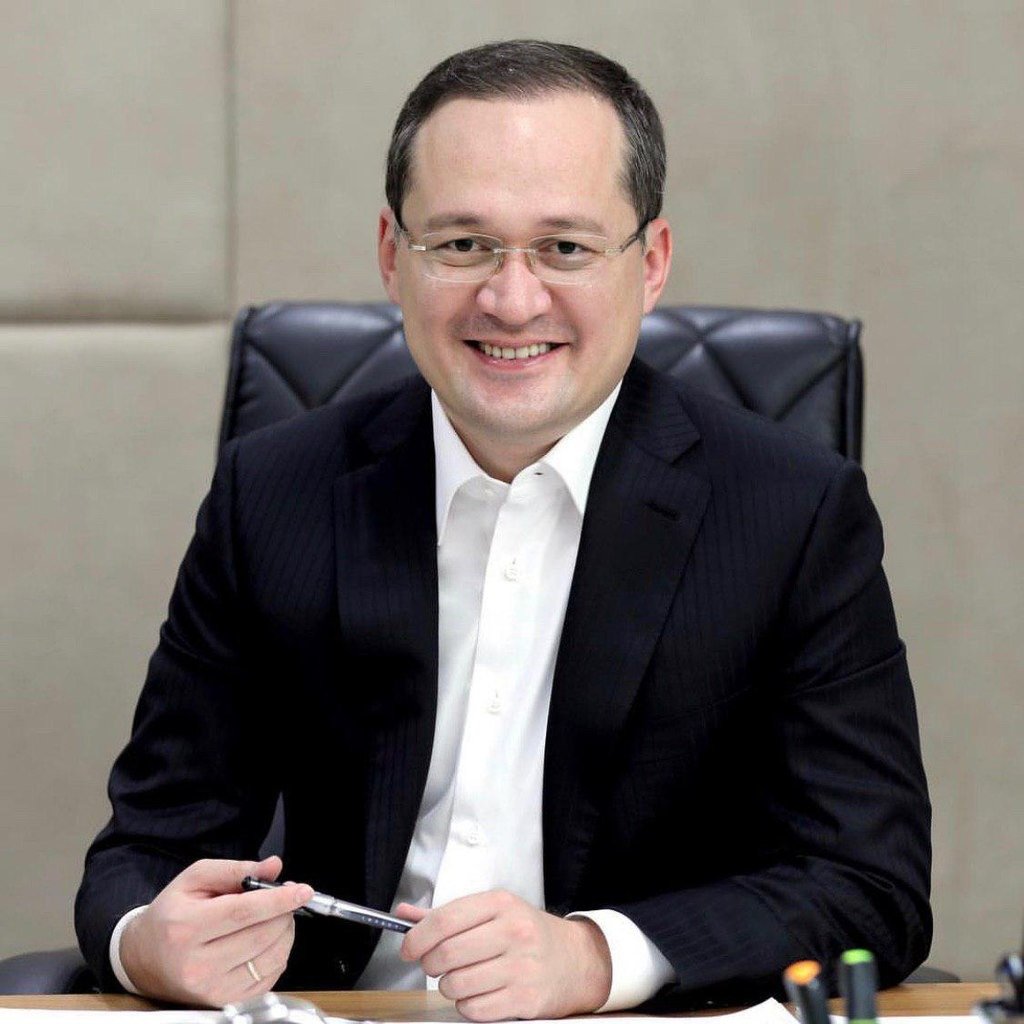
Komil Allamjonov. Photo: public archive / Wikimedia
Despite the absence of any high-ranking officials among the accused, the most significant outcome of the investigation was a series of presidential decrees dismissing Otabek Umarov, the deputy head of the security service, along with several senior «Office» associates:
- Head of the State Security Service (SSS) Abdusalom Azizov,
- Head of the Internal Security Department of the State Security Service of the President (SSSP) Shukhrat Rasulov,
- Assistant to the Prime Minister Sarvar Ashurov,
- Head of the SSS Internal Security Department Alijan Ashurov,
- Head of the Criminal Investigation Department of the Ministry of Internal Affairs Akhrorjon Adhamov,
- First Deputy Chief of the Tashkent Police Department Daniyar Tashkhodjaev,
- Head of the Organised Crime Division of the Tashkent Police Department Timur Sobirov.
It has now been revealed that, throughout the investigation, security officers loyal to the president closely monitored their colleagues, noting every attempt to influence the investigation’s strategy.
Two of the aforementioned security officials—Shukhrat Rasulov and Daniyar Tashkhodjaev—were reportedly already detained in connection with another criminal case involving obstruction of justice regarding one of the suspects in the assassination attempt. This method—using a permissible time gap and unrelated criminal charges—is fully in line with the traditions of state security agencies and resulted in the punishment of some of the «Office’s» enforcers.
Judging by developments, it seems that others involved in the organisation, including the «chief operating officer,» will also be held accountable in a similar manner.
Interestingly, the Supreme Court of Uzbekistan recently launched proceedings on a «related» case involving a complaint from seven former employees of Allamjonov, who claimed they had been unlawfully detained after the 26 October assassination attempt.
The real reason for their detention remains unknown, but the formal grounds cited were drinking alcohol. Sources in Uzbek media speculate that the detentions may have been ordered by the disgraced former First Deputy Chief of the Tashkent Police Department Daniyar Tashkhodjaev, acting under instructions from the ousted ex-head of the SSS Azizov. The detainees were allegedly coerced into testifying that the assassination attempt on Allamjonov was staged.
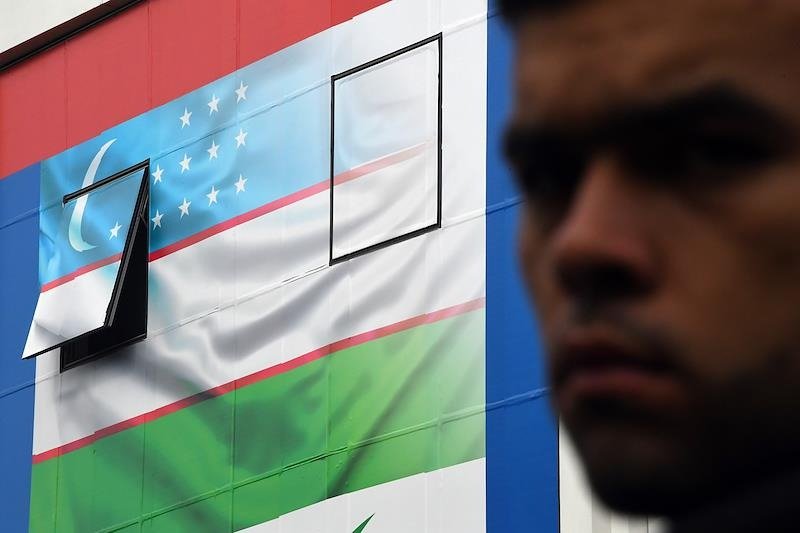
Facade with the colors of the flag of Uzbekistan. Photo: Anatoly Zhdanov / Kommersant
The Exile of the “Decemberist”
Ulugbek Shadmanov was detained in mid-December at his home in Dubai, where he resided as a privileged tourist, having been granted a “golden visa” by the Emirati authorities in exchange for investments. The arrest interrupted a meeting between the businessman and a group of American lawyers led by Mark Agnifilo, a former Manhattan District Attorney, who had reportedly arrived in Dubai to resolve UCG’s issues with the US Treasury.
Some media outlets described the operation to detain the businessman as extraordinary by local procedural standards—special forces of the UAE police stormed Shadmanov’s residence and took him away to an undisclosed location without even notifying his lawyers. Allegedly, even the American lawyer Agnifilo was not spared, receiving a stern recommendation to leave the Emirates instead of an apology.
On 8 January, without a court ruling on extradition, Shadmanov was deported to Uzbekistan—another unprecedented occurrence in the UAE’s established legal practices.
Radha Stirling, founder of the legal firm Due Process International and Shadmanov’s lawyer, sharply criticised the Emirati authorities’ actions in several interviews, linking her client’s persecution to an ordinary corporate raid on his business:
“It is absolutely clear that the Uzbek authorities are persecuting Shadmanov to unlawfully seize his assets. We are certain that he will be tortured until he signs over all his assets. His family fears for his life and will do everything possible to ensure he receives due legal process.”
Despite appeals from his lawyers, Shadmanov, according to eyewitness accounts, had anticipated such developments. One of the American attorneys representing the businessman stated in a phone conversation with Uzbek journalists on 14 December that “Shadmanov hired him two weeks ago to gather detailed information about the incident that occurred near Tashkent on 26 October.”
In any case, the decision to extradite Shadmanov was reportedly made following high-level political negotiations, according to sources close to the diplomatic circles of Uzbekistan and the UAE.
By Andrey Sukhotin
